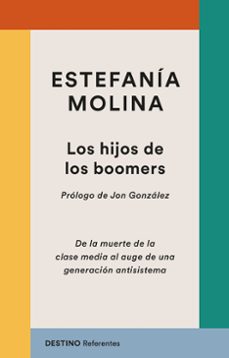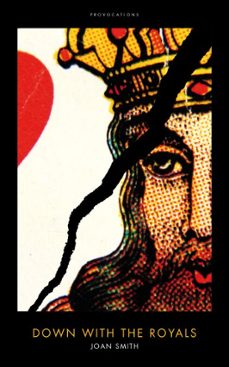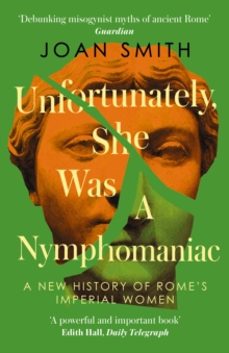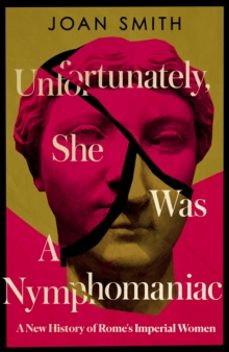Imprescindibles
Más vendidos Libros más leídos eBooks más leídos Todos los libros Todos los libros Autores destacados Series y sagas
Recomendados Libros recomendados Autores destacados Libros que inspiran Vidas con historia LGTBIQ+ English books
Ficción
Literatura Contemporánea Estudios literarios Clásicos Cuentos Poesía Teatro Libros de bolsillo Sagas literarias
Géneros literarios Novela romántica y erótica Novela negra Novela histórica Narrativa fantástica Novela de ciencia ficción Novela de terror Narrativa de humor Narrativa de viajes
No Ficción
Ciencias y tecnología Biología Ciencias Ciencias naturales Divulgación científica Informática Ingeniería Matemáticas Medicina Salud y dietas Formación Idiomas Estilo de vida Libros de Cocina Guías de viaje Narrativa de viajes Deportes Libros de Juegos Manualidades
Humanidades Autoayuda y espiritualidad Ciencias humanas Derecho Economía y Empresa Psicología y Pedagogía Filosofía Sociología Filología Biblioteconomía Estudios filológicos Estudios lingüísticos Estudios literarios Historia y crítica de la Literatura
Infantil
Juvenil
#Jóvenes lectores Narrativa juvenil Clásicos adaptados Libros Wattpad Libros Booktok Libros de influencers Libros de Youtubers Libros Spicy Juveniles Libros LGTBIQ+ Temas sociales Libros ciencia ficción Libros de acción y aventura Cómic y Manga Juvenil Cómic Juvenil Manga Shonen Manga Shojo Autores destacados Jennifer L. Armentrout Eloy Moreno Nerea Llanes Hannah Nicole Maehrer
Libros de fantasía Cozy Fantasy Dark academia Hadas y Fae Romantasy Royal Fantasy Urban Fantasy Vampiros y hombres lobo Otros Misterio y terror Cozy mistery Policiaca Spooky Terror Thriller y suspense Otros
Libros románticos y de amor Dark Romance Clean Romance Cowboy Romance Mafia y amor Romance dramatico Romcom Sport Romance Otros Clichés Enemies to Lovers Friends to Lovers Hermanastros Slow Burn Fake Dating Triángulo amoroso
Cómic y Manga
Novela gráfica Novela gráfica americana Novela gráfica europea Novela gráfica de otros países Personajes, series y sagas Series y sagas Star Wars Superhéroes Cómics DC Cómics Marvel Cómics otros superhéroes Cómics Valiant
Books in English
Books in English Fiction Non Fiction Comic Teen & Young Adult Main Authors Ken Follett Agatha Christie Stephen King Jane Austen Maggie O’Farrell On sale
Books in English for Young Adults Age 13+ Age 15+ Young Adult Authors Rebecca Yarros Sarah J. Maas Brandon Sanderson Ali Hazelwood Alice Oseman
Audiolibros
Literatura Contemporánea Narrativa fantástica Novela de ciencia ficción Novela de terror Novela histórica Novela negra Novela romántica y erótica Historia Historia universal
Humanidades Autoayuda y espiritualidad Ciencias humanas Economía y empresa Psicología y pedagogía Filosofía Infantil Audiolibros infantiles
Ciencia y tecnología Ciencias naturales Divulgación científica Medicina Salud y dietas Arte Cine Música Historia del arte
eBooks
Literatura Contemporánea Narrativa fantástica Novela de ciencia ficción Novela de terror Novela histórica Novela negra Novela romántica y erótica Juvenil Más de 13 años Más de 15 años Infantil eBooks infantiles
Humanidades Autoayuda y espiritualidad Ciencias humanas Economía y Empresa Psicología y Pedagogía Filosofía Historia Historia de España Historia Universal Arte Cine Música Historia del arte
Ciencia y tecnología Ciencias naturales Divulgación científica Medicina Salud y dietas Filología Estudios lingüísticos Estudios literarios Historia y crítica de la Literatura Estilo de vida Cocina Guías de viaje Ocio y deportes
JOAN SMITH
Recibe novedades de JOAN SMITH directamente en tu email
Filtros
Del 1 al 9 de 9
Biteback Publishing 9781849549011
When Prince George was just eight weeks old, the Evening Standard declared him to be the most influential person in London. He couldnt even walk, let alone talk. Yet one day he could become head of state, whether we like it or not. Joan Smith argues that it has become nearly impossible to question the existence of the monarchy. Articulate republicans are drowned out while the supercharged PR and media machines ask only who designed Kates dresses. Smith topples the arguments for having a monarchy, one by one. The royals dont provide a boost for tourism, and their deliberately opaque accounting conceals the truth about the huge burden they place on the public purse. And she exposes darker truths. These symbols of so-called impartiality have hidden power and influence. Not only does Charles regularly lobby government ministers but - far from the sycophantic reporting of Kates baby bump - the royals have dined with despots with blood on their hands. Are these people really fi t to be the public face of a modern country? Ultimately, Smith declares that the monarchy - undemocratic, unaccountable and shockingly expensive - has no place in modern Britain.
Ver más
eBook
The Westbourne Press 9781908906052
Women have never had more freedom yet questions of inequality persist from the bedroom to the workplace. A quarter of a century after the publication of her seminal text Misogynies, Joan Smith looks at what women have achieved - and the price theyve paid for it. From Amy Winehouse to Pussy Riot, from the veil to domestic violence, a war is being fought over womens bodies and minds. Smith shows how misogyny has assumed new and dangerous forms as we confront an economic, social and religious backlash. But thats only part of the story. The female eunuch has become the public woman, and she isnt going to go quietly. Written with wit and passion, this forensic analysis sets out what were up against - and how to fight back. Brilliant A compelling rap sheet of 21st century misogynies and a reprimand to anyone who declares the battle for gender equality is over - Robin Ince Joan Smith dares to expose woman-hating in all its forms. She does not shy away from naming religion and cultural relativism as barriers to liberation, and names men and the system of patriarchy as the problem. Read this book, not least because it will open your eyes to how much needs to be done before we consign male supremacy to the museum of ancient reli. - Julie Bindel
Ver más
eBook
The Westbourne Press 9781908906199
Misogynies is one of the most celebrated feminist texts by a British author. First published in 1989, it created shock waves with its analyses of history, literature and popular culture. Joan Smith drew on her own experience as one of the few women reporting the Yorkshire Ripper murders and looked at novels, slasher movies, Page Three and Princess Diana, teasing out the attitudes that brought them together. A feminist classic, Smiths exploration of fear and hatred of women resonates to this day.
Ver más
eBook
HARPERCOLLINS PUB. 9780008638849
Pacy witty and authoritative Jonathan Freedland In her hands ancient history becomes a vivid avenue of approach to a burning modern world concern a powerful and important book Daily Telegraph
Ver más
Tapa blanda
HARPERCOLLINS PUB. 9780008638801
Pacy witty and authoritative Jonathan Freedland In her hands ancient history becomes a vivid avenue of approach to a burning modern world concern a powerful and important book Daily Telegraph
Ver más
Tapa dura
Del 1 al 9 de 9
































